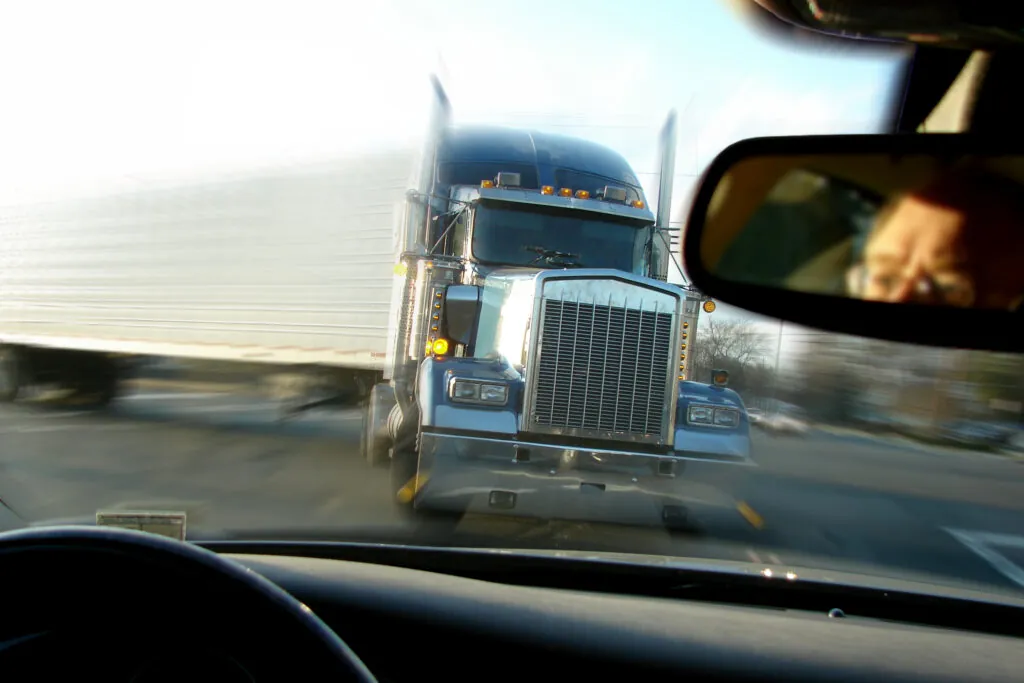Raleigh, NC: (919) 277-9299

The South Carolina attorney you choose for a truck accident will stress the importance of evidence collection and preservation, for good reason. Freight companies face steep financial and reputational consequences if the business or one of its employees is liable for a crash. These owners will deny facts to avoid accountability, even if that means leaving your life in chaos. This is why you need a legal team that understands how to handle trucking accidents. Bell Legal Group truck accident attorneys in Georgetown, South Carolina understand the role of evidence in building strong cases.
Preserving Evidence After Truck Accidents
Though the harm may be lasting, the evidence of an 18-wheeler crash isn’t permanent. Vehicles are removed, road conditions change, and damaged guardrails are repaired, complicating the facts of the case. A trucking company may try to erase a driver’s logbook or repair the vehicle before either can be examined. The attorneys at Bell Legal Group in Georgetown, South Carolina understand these tactics and will use legal tools to prevent the destruction or modification of any items related to your truck accident.
Without compelling evidence, your accident claim will lack a sufficient basis and will be difficult to prove. That’s why our attorneys assemble a legal team to collect and safeguard the diverse documents, media, physical evidence, and witness accounts that each play a vital role in illustrating the incident.
Accident Report
South Carolina law requires accidents resulting in injury to be reported to authorities immediately. The responding officer will create this collision report but it is not a conclusive document and South Carolina courts don’t permit these to be admitted as evidence of due care or negligence. Still, the report gives your legal team basic information to begin its investigation, including:
- Crash Location: Specific highway information
- Driver Information: Name, contact information, and vehicle details
- A Narrative of the Crash: A description of the accident, often with a drawing of the vehicle locations
- Characteristics of the Accident: Injuries, cargo spills, noticeable equipment failures, traffic lights, weather and road conditions
- Alcohol or Drug Test Information: Indicating whether the officer checked drivers for impairment
- Citations: Any traffic violations issued to either driver
- Investigating Officer: The name, rank, and badge number of the officer completing the collision report
Witnesses
Getting an eyewitness account can be crucial to a truck accident investigation. Potential witnesses include someone driving behind you or people nearby who saw the accident by happenstance. Other motorists may have noticed the semi-truck swerve before the crash or they may have been passed by the speeding driver earlier. If someone other than you or the trucker called 911, that caller can also provide a firsthand account. Ask potential truck accident witnesses for their contact information so your attorney can interview them and gather official statements.
Accident Photos
Photos capture accident details that may be difficult to recall later, and prove facts the trucking company may try to deny. If you’re able and it’s safe to do so, take photos of the crash site immediately after calling the police. These images capture the circumstances of the accident and make it difficult for the trucking company to deny their involvement and the outcome.
If your injuries or safety concerns prohibit you from taking photos, that’s okay. You may be able to obtain snapshots from passersby, Good Samaritans, and police investigations. Photo evidence should include the crash site, vehicles, and injuries.
Crash Site
Photos preserve evidence such as skid marks, vehicle debris, spilled cargo, broken guardrails, and potholes that may be cleared or repaired shortly after the crash. Pictures of permanent road features, traffic signs, and landmarks can also be instrumental in your case, especially if the trucker denies certain aspects of the scene. Take pictures from multiple directions and vantage points, if possible, to ensure any contributing factors are documented.
Vehicle Damages
Images of the vehicles involved in a truck accident also help support the details of the crash. Snap photos of scrapes, dents, crush points, and paint transfer to show how the vehicles collided. Capturing deployed airbags and interior damage can illustrate the force of the impact and paint a full picture of the property damage. Pictures of the truck, even if the damage isn’t apparent at first glance, are also essential to establishing the vehicle’s condition.
Pictures of Injuries
Not all injuries from a truck accident can be captured in photos, especially if serious harm, like internal bleeding, dislocated joints, or broken bones occur. You may need to rely on your medical records for evidence of these, but you should still photograph any visible scrapes, bruises, bumps, and cuts.
Camera Footage
Collecting video evidence for a truck accident is more complicated in South Carolina than in other states. You won’t have the advantage of traffic cameras that record, or red-light and speed-enforcement footage in this state, but that doesn’t mean you’re out of luck. Bell Legal Group understands other ways to obtain surveillance footage, including:
- Security cameras positioned in nearby businesses and parking lots
- Household doorbell cameras
- Personal vehicles equipped with dashcams
- Cellphone footage from bystanders
- Dashboard and bodycam videos from the responding officer
- Footage from the trucker’s dashcam
Electronic Data
Today’s truck drivers are heavily surveilled while behind the wheel, and one helpful monitoring device attorneys may use to prove liability is the ‘black box.’ This device records when an event occurs, such as sudden braking, acceleration, or steering, to capture the moments preceding a wreck. The data can relay how fast the truck was traveling, if and when the trucker applied the brake, whether the vehicle’s cruise control was set, and whether any mechanical malfunction was detected, among other variables.
Freight Company Logbooks
Transport companies are required to keep records of their truck inspections, maintenance, and driver service hours. They may do so manually, but many companies now use electronic logging devices (ELD). Bell Legal Group will request access to ELDs to check for trucking law violations that impacted the driver’s safety. We’re familiar with federal regulations and South Carolina laws, so we understand which logbook evidence shows that the vehicle operator or the employer’s negligence contributed to the trucking accident.
Vehicle Inspections
Whether the vehicles were towed to Georgetown or to another South Carolina city, Bell Legal Group will dispatch investigators to review the semi-truck and trailer for mechanical failures and other indications that it was not road-ready. Signs of wear and tear, fluid leaks, damaged belts, or compromised wiring can indicate maintenance issues or faulty parts. Reconstructionists can also review physical damage, such as dents, scrapes, or blown tires, to assert where and how the truck struck the passenger vehicle.
Medical Records
If you aren’t taken from the trucking accident scene in an ambulance, you should seek a medical evaluation as soon as possible. Medical records document your injuries and treatments and offer objective evidence of the future impact of the harm. Your attorney can calculate your pain and suffering, plus medical bills for doctor visits, surgeries, or other care, to ensure your truck accident lawsuit damages are accurate and fair.
A truck driver’s medical records can also serve as an important piece of evidence. The Department of Transportation (DOT) requires drivers to be examined for conditions that could jeopardize their safety on the road, such as high blood pressure or mental conditions. Drivers have two chances to pass before they are stripped of their DOT status. Bell Legal Group attorneys have the foresight to review past exam results for signs that the driver was unfit.
Using Evidence To Reconstruct Truck Accidents
Bell Legal Group employs a team of investigators around South Carolina who understand common causes of truck accidents. They review the photos, witness statements, logbooks, and other crash evidence collected to recreate the incident from start to finish, naming all contributing factors.
Proving the cause of an accident is challenging, especially when trucking companies try to block your efforts at every turn. That’s where Bell Legal Group can help: Our truck accident attorneys in Georgetown, South Carolina will leverage many types of evidence to build a compelling case on your behalf and trace liability back to the responsible party.
